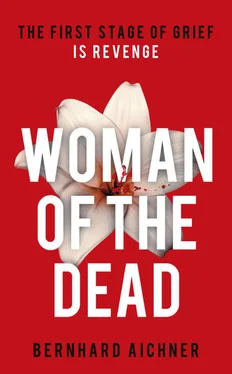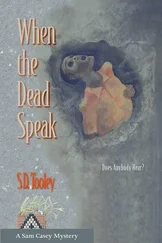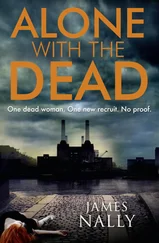
Woman of the Dead
A Thriller
by
Bernhard Aichner
‘If you look down into an abyss for a long time, the abyss looks back at you.’
Friedrich Nietzsche
You can see it all from above. The sea, the sailing boat, her skin. A naked woman is on deck, the sun is shining and all is well. She simply lies there, looking up; her eyes are open, there’s just her and the sky, the clouds. This is the best place in the world: the boat that her parents bought twenty years ago, a marvel, a pearl beyond price, at home in Trieste harbour. Life on the water under the open sky where there’s no one else in sight. Only water far and wide, music in her ears, sweat gathering in her navel. Nothing else.
They have been sailing from Trieste to the Kornati islands, they’re in no hurry, there is nothing to do. She has gone on holiday with her parents for so many years now. They’ll soon be seventy, tanned by wind and weather, passionately enthusiastic sailors both. They’ve always gone on sailing holidays, ever since she was small. As a child she wore bathing trunks, then a bikini, she was never naked before.
She undressed two hours ago, and lay down without bothering to apply sun cream. She wants the sun to burn her, she wants her skin to scream out loud when she is found. She wants to be naked at last. Now, there is no one to tell her off. No father. No mother. She is alone on the boat with her breasts, her hips, her legs, her arms. There’s a smile on her lips as she sways in time to the music. At this moment, there’s nowhere on earth she would rather be. She’ll lie there for another three hours, stretching out in the sun, soaking up the summer. Another three hours, or four. Until they finally sink. Until they stop calling out. Until they stop flailing at the water, splashing it into the air. Until they fall silent for ever.
It is midday off the Croatian island of Dugi Otok. She doesn’t move. She’s going to say that she fell asleep, she didn’t hear a thing, the music was too loud, the sun made her drowsy. She will answer all the questions she is asked, she will give a full explanation, and she will shed tears. When the time comes, she’ll do everything it takes. But for now there is only the sky above her and she traces circles on it, writing in the blue space. She paints her future in the sky, imagining her new life. Now the Institute is hers. She will change everything, modernise it, make it a successful business again. She’ll be in charge of everything. She will take the boat back to Trieste and begin all over again.
There’s sweat everywhere. How she enjoys being naked. You are not going to undress, Brünhilde. Not on our boat. Our rules hold good as long as we live, Brünhilde. But there are no rules now, nothing is forbidden. She has undressed, she is lying on deck stretching out her body. Everything that makes her what she is waves in the wind like a banner, she blossoms in the sun, she is happy. Happier with every minute she spends alone.
Brünhilde Blum is twenty-four years old, the daughter of Hagen and Herta Blum. Adopted daughter. They took her from the children’s home when she was three, they trained her like a domestic pet; she was brought up to succeed them. She was Hagen’s last hope for the family firm. Even if they could only adopt a girl. A girl or nothing, they were told. The waiting lists were long, and Hagen was desperate. So desperate that he began to contemplate leaving his business in the hands of a woman. She was to carry on the firm that was sacred to him, she was to preserve what he had created, she was to be a substitute man for Hagen’s sake. She did everything he demanded, everything required by the profession. The firm of Blum, Funeral Directors, meant the world to him, it mattered more than anything.
It was a traditional business: her prison, her nursery. Founded shortly after the war, at a time when there was a good trade in death. In 1949, the Blums took over the things the neighbours used to do. The neighbours would help when someone died, would see to the washing, dressing and laying out of bodies. Now they were superseded by the undertakers’ firm. Old customs that had seemed natural were now taboo. Touching the dead, bidding them farewell before they disappeared into their coffins. People were glad that now someone else would dispose of everything as quickly as possible, take the body away and stow it underground. A clean, matter-of-fact business.
The Blums were prominent figures in Innsbruck. They made a good living from the dead. First Hagen’s father, then Hagen, from now on Blum. Just Blum, because she hated her first name, she’d never been able to bear it. Brünhilde, leave the dead bodies in peace. Brünhilde, stop playing with them. Brünhilde, stop sticking your fingers up their noses. Brünhilde. It was a name which had nothing to do with her, a name which belonged to Wagner and to Hagen’s world. A name that she had banished from her life. Only Blum now. No Brünhilde. Not since she was sixteen, not since she stopped being Hagen’s little soldier, no longer did absolutely everything he told her to. Only Blum. She insisted on it. Never mind if he punished her for that.
She looks at the sky. She turns up the volume of the music, the boat rocks back and forth, there isn’t a soul to be seen far and wide. No one to help them, no one to hear their screams. No one but her. She lies there naked, almost like a dead body in the preparation room. Bodies lying on the slab, cold and lifeless, for as long as she can remember. She didn’t have any friends, the profession scared the other children off. They couldn’t cope with the fact that her father’s business was with the dead, and so was hers. Blum was a freak, and the other children laughed at her, excluded her from their games, mocked her and ganged up on her. She suffered all through her childhood and her teenage years. She longed for a friend, whether a boy or a girl, someone to share her life with, someone she could talk and laugh with. But she was all on her own, she had no one but her parents. Unloving parents. A silent mother who never hugged or kissed her, and a father who made her do things no child should ever have to do.
She’d been made to lay out the dead since she was seven. There’s no time to be lost, Brünhilde, the early bird catches the worm. Don’t make such a fuss, Brünhilde, they’re not going to bite you. Don’t be so girly, Brünhilde, grit your teeth and stop crying. If you don’t stop that noise this minute and do as I tell you, I’m going to put you in the coffin, do you hear me, Brünhilde? Blum shampooed the dead people’s hair, she shaved them, she washed blood from their bodies and helped to dress them. She was ten years old when she first stitched up a mouth. Whenever she refused to perform a task, she was shut up in the coffin. Countless times, for hours on end, a small, frightened child alone in the dark. She resisted but Hagen broke her will every time. She was forced to lie in the coffin while he screwed the lid down. You leave me no alternative, Brünhilde. When are you going to stop fighting me? I really have no other option, Brünhilde. And then the lid closed. A child in a wooden box. She held out as long as she could, she wished she could have been stronger, but she was only a child. She was helpless, she had to bear it, no one helped her, no one cared about her tears, her pleading. I don’t want to do it. I can’t. Please don’t make me do it. That was just before she brought the needle up through the chin from below and into the mouth cavity, pulling the thread through dead flesh. She did everything, but it wasn’t enough. Never mind how much she longed for a loving touch, to see her parents beam proudly. She was never good enough, however hard she tried. She was only a girl, defenceless and helpless, little Blum. Please let me out, Papa. Please don’t shut me up in there. Not in the coffin again, Papa. Please don’t.
Читать дальше













